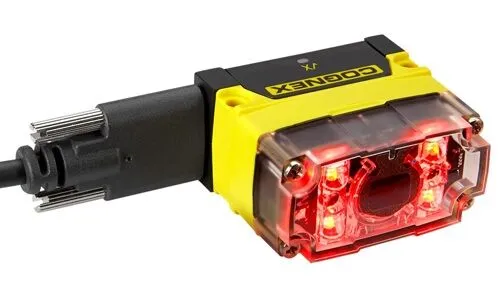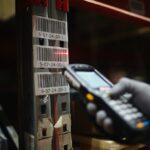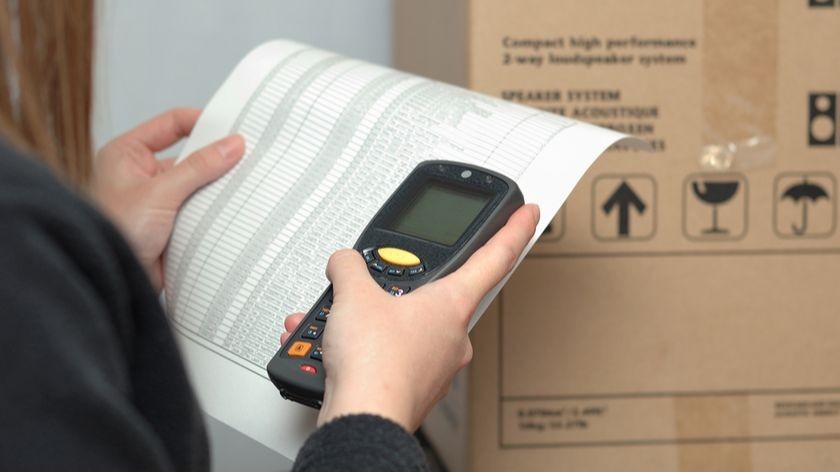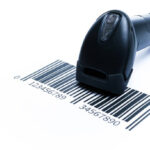Industrial Barcode Scanners vs. Barcode Readers: What’s the Difference? Barcode Scanners and Readers probably look the same, but their specific use and price are the main differences. This blog discusses Industrial Barcode Scanners vs. Barcode Readers: What’s the Difference?
Barcode scanners are typically more reasonable and are generally used for public barcode scanning in settings like supermarkets, amenity stores, and drugstores. Barcode readers are more costly and developed for distinguishing uses. They are usually used in industrial or business backgrounds where objective barcode reading is important.
If you are looking for an exceptional Industrial Barcode Scanner vs. Barcode Reader, Unseen is one of the leading Cognex Scanner & Cognex Barcode Reader distributors. We provide high-quality Industrial products at affordable prices. If you want to know more about our services or products, you can call +91-7206-86-5596 or email info@unseenera.com.
Before We Proceed –
In the past, industries faced challenges due to a lack of technical innovations, impacting productivity and causing losses. Barcodes revolutionized industries by providing fast and efficient tools for tasks, improving productivity and business operations.
Barcodes are machine-readable patterns applied to products, containing essential data for marketing and tracking. They come in 1D and 2D formats, with 2D barcodes like QR and Data Matrix, providing enhanced accuracy and traceability compared to manual data entry.
Industrial Barcode Scanners vs. Barcode Readers: What’s the Difference?
| Feature | Barcode Scanners | Barcode Readers |
| Purpose | Mainly developed for high-volume, industrial uses requiring durability, speed, and precision. | Appropriate for different uses, like retail, logistics, and healthcare, where average scanning needs are acceptable. |
| Longevity | Made to resist harsh conditions, like extreme temperatures, dust, and moisture. | Typically less long-lasting than industrial scanners, but still appropriate for most indoor settings. |
| Scanning | Adept at scanning barcodes at very high speeds, frequently transcending 1,000 scans per minute. | Scan at a deliberate pace, normally around 100-300 scans per minute. |
| Decoding Ability | Can solve a broad range of barcode symbologies like dense and shattered codes. | Restricted decoding abilities compared to industrial scanners, particularly for low-quality or sabotaged barcodes. |
| Connectivity | Offer different connectivity choices, like USB, RS-232, Bluetooth, and Ethernet. | Normally have fewer connectivity choices, usually limited to USB or RS-232. |
| Trigger Mechanisms | Usually have hands-free trigger mechanisms for improved efficiency in industrial environments. | Mostly depends on manual triggers. |
| Scanning Distance | Can scan barcodes from a more extended distance, usually up to many meters. | Have a faster scanning range, commonly limited to a few centimeters. |
| Applications | Manufacturing, warehousing, logistics, and other industrial environments. | Retail stores, libraries, healthcare facilities, and offices. |
| Cost | Typically more expensive because of their cutting-edge elements and longevity. | Less costly than industrial scanners, making them a more reasonable choice for many uses. |
Significance of Industrial Barcode Scanner & Readers –
Nowadays, companies use barcodes to facilitate quest procedures, making it more comfortable to access shipping elements, production information, pricing, and many more. Industrial barcode scanners and readers play a critical role in fast charging and decoding barcode data, sending it to a database for search and logging. These are developed to resist harsh states like extreme temperatures and smoke, ensuring precise and timely readings without impacting productivity.
Advantages of Industrial Barcode Scanners & Readers –
There are multiple benefits of Industrial Barcode Scanners & Readers in Industries, here we mentioned some key benefits of them.
- These state-of-the-art tools simplify data capture by eradicating manual entry.
- Reducing errors and running up operative workflows.
- They interpret barcodes, decreasing shipping errors and enhancing precision in order actuality and asset quest.
- Industrial barcode scanners and readers are like superheroes, promoting productivity and efficiency while lowering labor prices and extreme resource wastage.
Conclusion –
In conclusion, industrial barcode scanners and readers play an important role in enhancing efficiency, decreasing errors, and improving productivity in different industries. Their capability to facilitate data capture, decode barcodes, and resist harsh conditions makes them important tools for streamlining functional workflows and providing accurate tracking and logging of important details.
FAQS for Industrial Barcode Scanners vs. Barcode Readers: What’s the Difference?
Q.1 What are the major differences between industrial barcode scanners and barcode readers?
Ans. Industrial barcode scanners are made for high-volume, industrial use, prioritizing longevity, speed, and precision. Barcode readers are more adaptable and appropriate for uses like retail, logistics, and healthcare, where traditional scanning needs are acceptable.
Q.2 What are the main uses for industrial barcode scanners and barcode readers?
Ans. Industrial barcode scanners are mainly used in manufacturing, warehousing, and other industrial settings, while barcode readers are usually used in retail stores, libraries, healthcare, and offices.
Q.3 How do industrial barcode scanners and barcode readers vary in terms of scanning and longevity?
Ans. Industrial barcode scanners can scan barcodes from a more ample distance, up to many meters, and are made to withstand harsh states. Barcode readers have a quicker scanning range, normally limited to a few centimeters, and are generally less long-lasting than industrial scanners.










 Call
Call Whatsapp
Whatsapp Contact Us
Contact Us